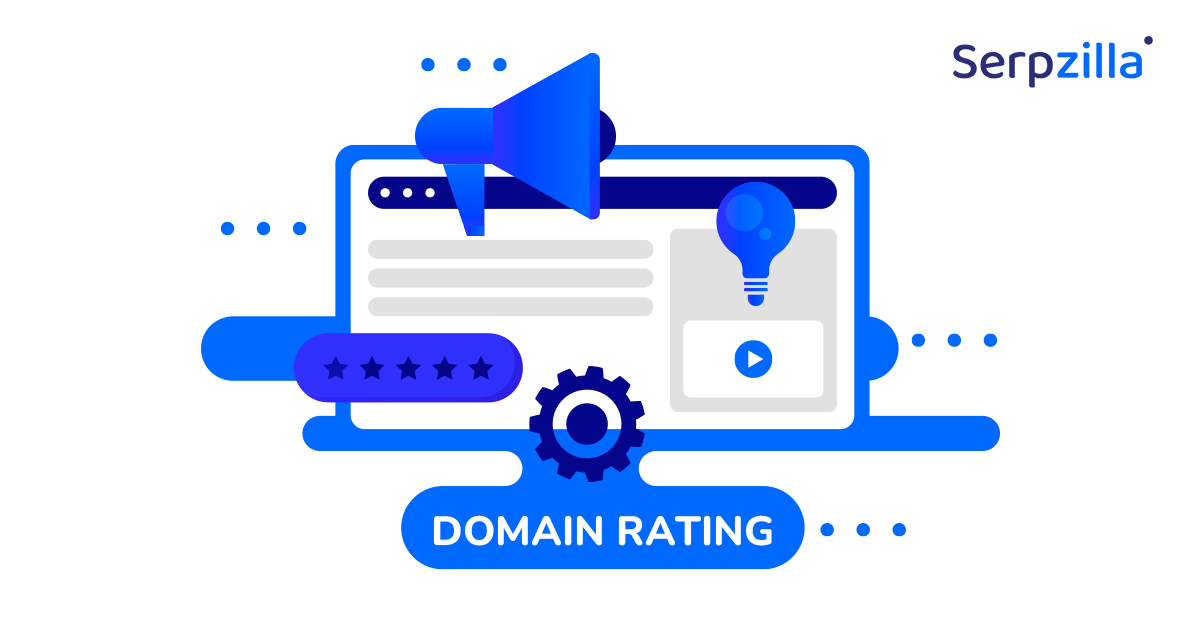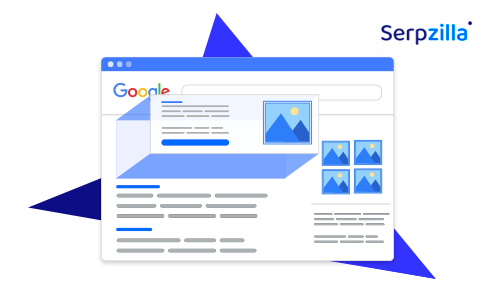Domain Authority (DA), a numerical metric developed by Moz, holds a pivotal role in the world of SEO. Ranging from 1 to 100, DA serves as a predictive indicator of a website’s potential efficacy within search engine rankings. A higher DA value often correlates with a greater likelihood of securing prominent positions within search results. It is a valuable evaluative tool that helps digital marketers and website owners to gauge the strength of their online presence.
One of the core features of DA’s prominence lies in its impact on link building strategies. In the vast world of search engine algorithms, links are regarded as indicators of trustworthiness and domain authority. What sets high DA sites apart is its ability to convey a sense of endorsement and credibility. A link originating from a high DA site is not just a hyperlink; it symbolizes an endorsement from a well-respected and authoritative entity. This distinction elevates its influence far above links from other less reputable sources.
Understanding your own website’s DA offers strategic advantages, particularly with link building initiatives. It provides various insights into the competitive landscape, enabling navigation among numerous options. This knowledge empowers website owners to make informed decisions when creating backlinks. In essence, DA functions as a compass, guiding link-building projects towards successful connections while helping avoid pitfalls. It’s not just a numerical framework; it’s a framework of calculated strategy and engagement, playing a key role in enhancing a website’s perceived status.
How to Understand Low and High DA Scores
Through understanding Domain Authority (DA), you can improve their website’s visibility and SEO performance. As previously mentioned, DA employs a scale of 1 to 100 to gauge a website’s potential ranking within search engine results.
To break it down even further:
- DA 1-20: This range is considered low and often characterizes newer websites or those with minimal inbound links. Younger sites typically fall here, but with consistent effort and the creation of high-quality content, they can gradually increase their DA ranking to ensure trustworthiness.
- DA 21-50: Falling into the moderate category, websites in this range usually have a growing online presence. This score signifies a continued dedication to maintaining quality content and implementing effective link-building strategies.
- DA 51-70: This high DA score indicates that a website is already well-established. Such sites boast a robust link profile and consistently deliver high-quality content. They are viewed as authorities within their chosen niches.
- DA 71-100: This top-tier range is reserved for large-scale websites with extensive numbers of high-quality inbound links. Examples of websites with this score may include major news websites or industry-leading blogs.
However, don’t fret if your website’s score is not within the higher range. It’s important to consider a website’s DA in relation to its competitors. If most of your competitor sites have a DA of 40, achieving a DA of 50 can be seen as excellent within that chosen context and niche.
Nonetheless, it’s crucial to keep in mind that while DA is a valuable framework, it’s just one of many within the realm of SEO metrics. Focusing exclusively on DA might cause you to overlook other essential aspects. A comprehensive and wide-ranging approach is typically the most effective strategy in the world of SEO rankings.
In conclusion, having a grasp of Domain Authority and its score range (1-100) is vital for successful SEO rankings. Different DA levels correspond to varying levels of online authority. However, always maintain a varied perspective, considering all aspects of SEO for a more well-rounded and successful strategy.
How is Domain Authority calculated?
It’s important to remember that domain Authority (DA) isn’t a straightforward score; it’s a mix of various factors that combine to give you a sense of how well your website may do in rankings. Here’s a closer look at the factors involved in calculating a DA score:
- Link Profile: DA pays attention to the links coming to your site. Having more high-quality and relevant websites linking to yours often means your website will have a higher DA.
- MozRank: MozRank measures the strength of external links to your site. If your site gets links from authoritative sources, your MozRank goes up as it suggests relevance and trustworthiness.
- MozTrust: Similar to MozRank, MozTrust considers how close your site is to other trusted websites. Links from reliable sources like government or educational sites can boost your DA.
- Content Quality: Search engines value good quality content. Regularly publishing relevant and high-quality content in your niche plays a big role in your DA.
- SEO Practices: A well-optimized website, including aspects like on-page SEO, site structure, and meta tags, can impact DA in a positive sense. This is why it remains important to consider all aspects of SEO, not just your DA score.
- Social Signals: While the impact of social media on DA is the subjects of debate, factors like social shares, likes, and your overall social media presence can potentially influence your DA, thus this factor should be considered.
- Search Engine Friendliness: Important elements such as website loading speed, mobile-friendliness, and overall user experience can indirectly affect DA by influencing other SEO metrics.
It’s important to understand that Domain Authority is a relative metric in terms of search engine ranking. It’s primarily used to compare your site against similar competitors, rather than being a total measure of your site’s overall SEO performance. Moz updates its algorithms regularly, so DA scores can change based on the evolving web landscape and Moz’s own metrics.
So, keep an eye on your DA, but remember that it’s just one piece of the complex and varying SEO puzzle. A comprehensive SEO strategy should consider various factors, including user experience, content quality, and on-page optimization. Doing so can achieve the best results in the ever-evolving online landscape.
Where Can You Buy High DA Backlinks?
Purchasing high Domain Authority (DA) backlinks has been an important topic in the SEO world, and many in the sector are intrigued by the idea. When done right, it can potentially fast-track your website’s authority growth. However, it’s crucial to proceed cautiously and prioritize both quality and relevance. Here’s where and how you can get high DA backlinks:
- Specialized Link Building Services: You’ll find agencies and SEO pros offering link-building services. Some focus on fetching backlinks from high DA websites. But remember, do your homework, and ensure the links they offer are of a high quality.
- Serpzilla: Serpzilla is a one-stop solution for enhancing your DA score. Our guest post services empower you to effectively position content and backlinks on high Domain Authority (DA) websites. Our platform places a strong emphasis on content relevance, ensuring your backlinks remain natural, beneficial, and of a high quality.
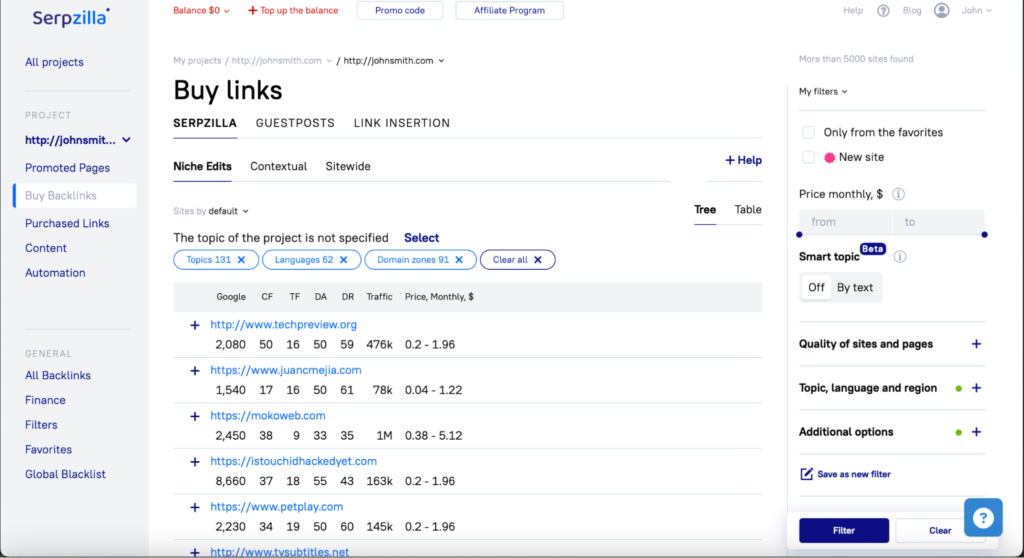
Boost your SEO results! Link building has become fast and easy with Serpzilla. Buy quality backlinks on authority websites with high DR.
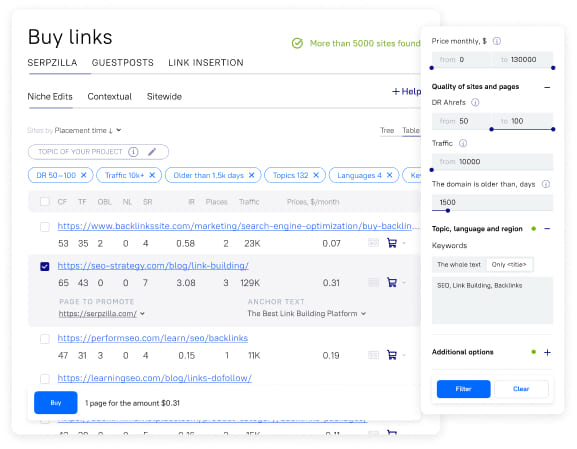
- Private Blog Networks (PBNs): PBNs are networks of websites designed solely for building backlinks. But be warned, Google has been cracking down on these. If you go this route, tread carefully and always aim for quality over quantity.
- Backlink Marketplaces: Websites like BlackHatWorld often have sections where members can offer backlink services, some from high DA sites. Proceed with caution and thoroughly vet any sellers to ensure quality.
- Direct Outreach: This involves reaching out to websites directly for sponsored posts or ad opportunities that contain a link to your site. This method tends to be time-consuming but ensures you get relevant backlinks that are of a high quality.
- Brokered Backlink Deals: Some SEO professionals act as middlemen, setting up deals between websites and those looking for high quality backlinks. These brokers often have connections with high DA site owners, making the process smoother.
Now, a few things to keep in mind:
– Google’s not a fan of paid links meant to manipulate rankings. Penalties can be harsh, so be cautious. Always do the relevant research before spending.
– Always prioritize relevance. A high DA link from a site unrelated to your own might not be as valuable as a lower DA link from a similar source.
– Regularly keep an eye on your backlink profile, even when buying high-quality ones. It’s an essential step for overall link health.
In conclusion, while buying high DA backlinks can give your website’s authority a significant boost, it’s a tactic that needs time, strategy, a heavy focus on quality, and an awareness of the associated risks. It may be a shortcut, but it’s not without its bumps.
How can your DA score decrease?
Losing Domain Authority (DA) can be of concern for website owners, as it’s a valuable metric that reflects your site’s credibility and influence in comparison to others. While a decrease in DA can occur for varying reasons, it’s important to understand the key factors that might lead to this decline, so that they can be worked on.
- One common reason for a drop in DA is a lack of high-quality backlinks. When reputable websites that previously linked to your site remove or modify links, it can negatively impact your DA. Equally, accumulating low-quality backlinks through questionable practices like purchasing links may also harm your DA.
- Maintaining an updated and relevant website is crucial. An outdated site with stale content may lead to a decline in backlinks, which can result in a reduced DA score. Additionally, websites that engage in black-hat SEO practices and receive penalties from search engines will likely experience a noteworthy drop in DA scores.
- Technical issues can’t be overlooked either. Problems like incorrect robots.txt configurations, frequent downtime, slow page loading, or a lack of mobile-friendly features can erode the trustworthiness of your site, thus affecting your DA.
- User experience plays a substantial role, though indirectly. High bounce rates, low usage time and poor site navigation can dissuade other websites from linking to yours, contributing to a lower score.
- It’s worth noting that changes in Moz’s algorithm can impact your DA also, even if nothing has changed on your side. Moz regularly updates its DA calculation algorithm, which can result in score fluctuations. It remains important to stay up to date with these changes.
- Lastly, if your industry rapidly improves their backlink profiles, your DA may decrease comparatively, potentially putting your behind competitors.
To maintain or improve your DA, it’s essential to adhere to best practices, conduct regular website audits or updates, reflect on the success of techniques, and avoid shortcuts or dubious techniques. Focus on delivering quality, valuable content to your users, and your website’s authority will logically grow over time. By using websites like Serpzilla, you can secure quality backlinks that ensure your DA score remains high.
Understanding Domain Authority Checkers
Assessing your Domain Authority (DA) stands as an important task in gauging your website’s credibility. Thankfully, an array of dependable tools exists for this purpose. Below, we’ve compiled a selection of widely-used Domain Authority checkers.
Moz Link Explorer:
Coming from the innovators at Moz, Link Explorer emerges as a comprehensive backlink scrutiny instrument. Employ this tool to understand the DA of any given website, along with access to insights on linking domains, inbound links, and keyword rankings.
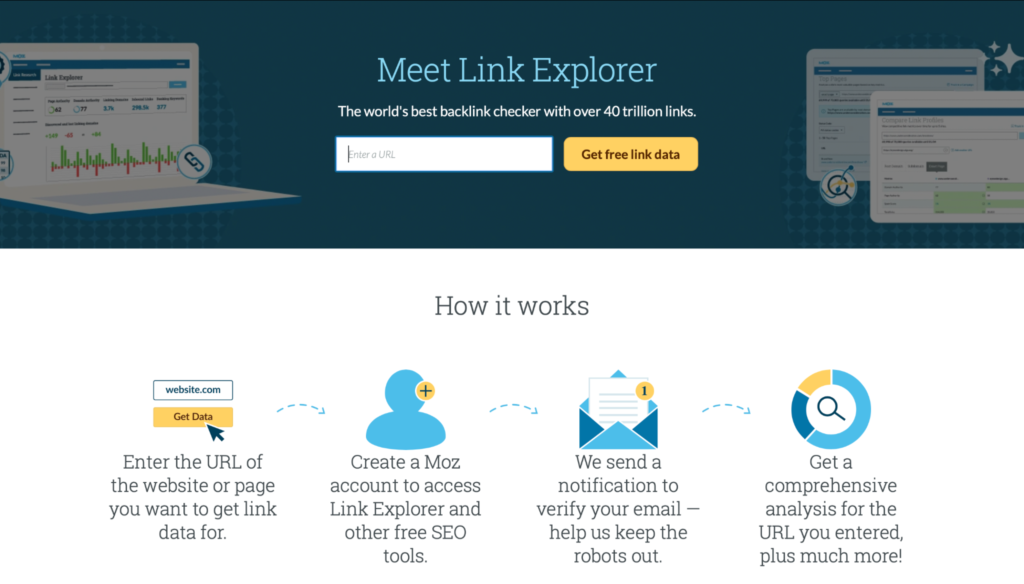
Ahrefs Site Explorer:
While Ahrefs employs the Domain Rating (DR) metric in place of DA, its function aligns closely. Ahrefs Site Explorer furnishes a complex view of a website’s backlink profile and SEO data.
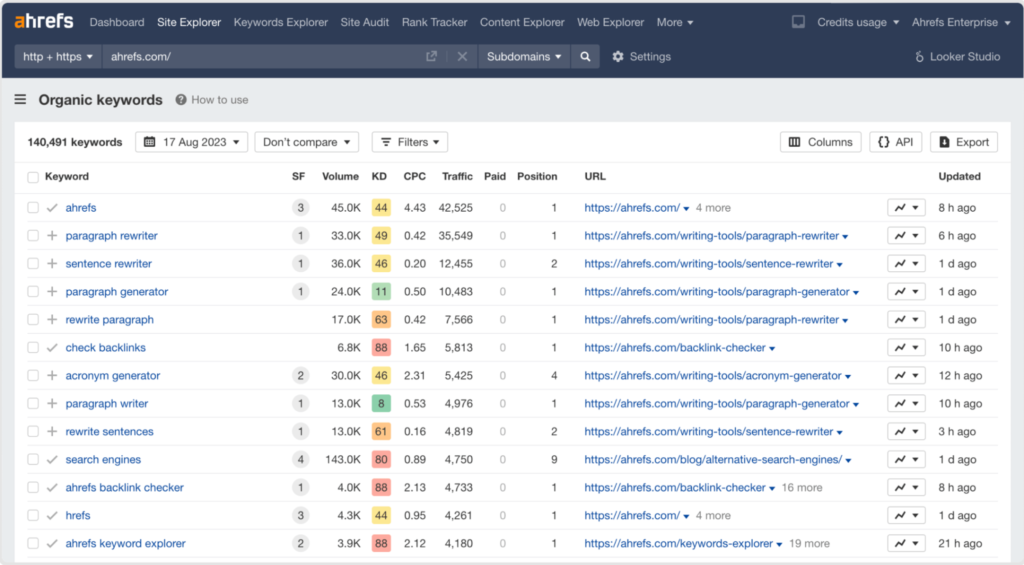
SEMrush
Tailored for SEO professionals, SEMrush provides a suite of robust tools. While it may not offer a ‘Domain Authority’ measure, it introduces a “Domain Score” concept, gauging the calibre and quantity of a domain’s backlinks.
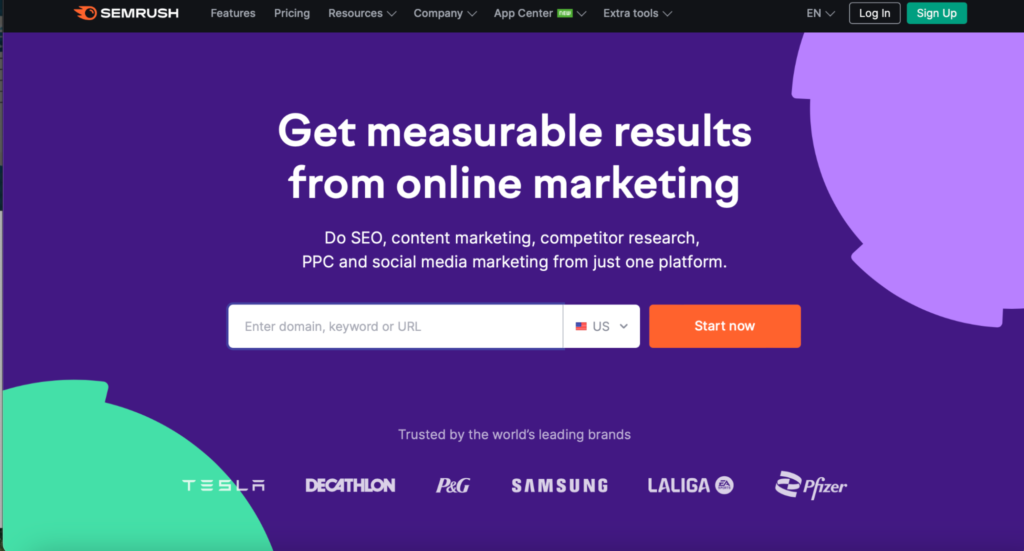
Ubersuggest: Crafted by Neil Patel, Ubersuggest offers an extensive dossier on any domain, encompassing its DA among other insights. It also unravels backlinks, top-performing pages, and pivotal SEO metrics.
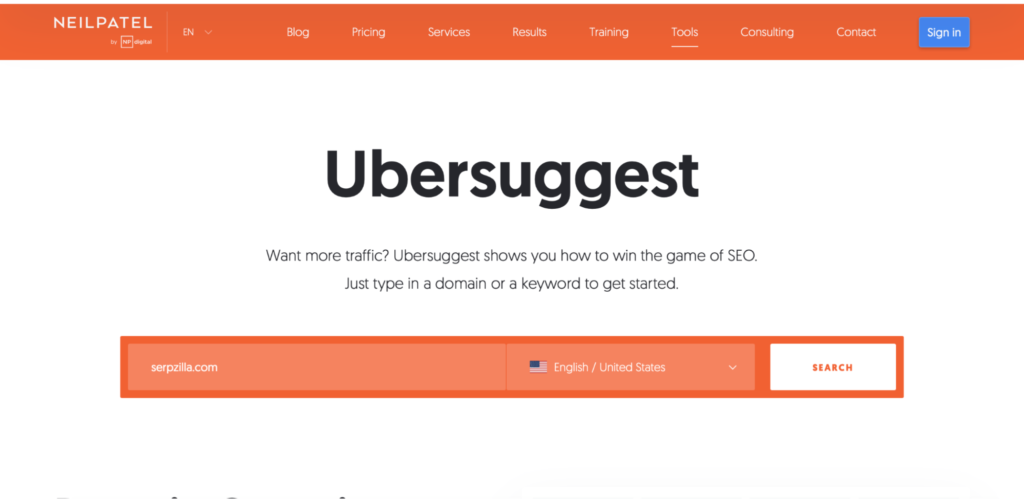
Bulk DA Checker: True to its name, the Bulk DA Checker allows for the assessment of DA for multiple URLs. This utility becomes especially handy when conducting research on multiple websites in parallel.
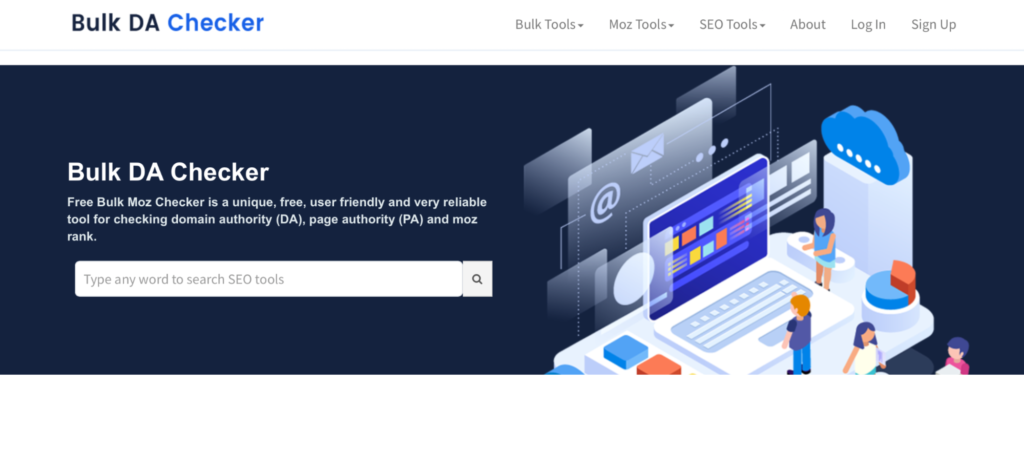
It’s imperative to bear in mind that DA serves as a comparative metric and may exhibit variations among tools owing to their distinctive algorithms and data origins.



